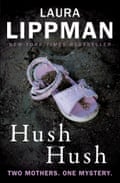
Hush Hush (Faber, £12.99) is Laura Lippman’s first novel featuring Baltimore PI Tess Monaghan since 2011’s The Girl In the Green Raincoat. There, she was pregnant with the daughter whose presence gives Hush Hush an extra edge. For Hush Hush is about filicide. It finds Monaghan and her partner, Sandy, assessing the personal security of Melisandre Harris Dawes, a former lawyer who years ago was found not guilty by reason of insanity for the murder of her two-month-old daughter. After the verdict, Dawes left the country and ceded custody of her two older daughters to her ex-husband. But as Hush Hush opens, this wealthy, dislikable woman has returned to Baltimore to make a film of her reunion with them.
Hush Hush is cleverly told, often via chunks of interview transcript from the documentary. Dawes and Monaghan are poles apart, but Lippman unites them to make salient points about the invidious labelling of women as good or bad mothers. It’s refreshing how chaotic and ordinary Lippman allows Monaghan to be, without ever making her boring.
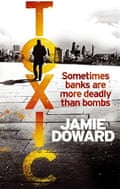
The debut of Observer journalist Jamie Doward, Toxic (Constable, £19.99) follows Kate Pendragon, a financial analyst seconded to MI5, as she links the discovery of a headless, handless corpse on a beach in Kent to a plan by a Saudi prince to fly a plane into a nuclear reactor so that his hedge fund can make an opportunistic profit. There is a real-life inspiration for this: unusual stock trades just before 9/11 seemed to indicate foreknowledge on the part of some institutions. Doward ably clarifies the financial context and keeps the momentum constant – appropriately, given how concerned Toxic is with running and the telltale properties of smart watches.
Where Doward is less successful is in avoiding cliche. The brownie points he earns for making fitness obsessive Pendragon 40 he loses for constantly reminding us that she is, despite this tragedy, still hot. But at least she stands out: some of Doward’s male spooks are as indistinguishable as they are undistinguished.
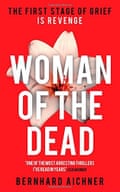
Austrian Bernhard Aichner researched Woman of the Dead (Weidenfeld & Nicolson, £14.99) by spending six months working as an undertaker’s assistant. Death is the family trade of his antiheroine, Blum. Her undertaker stepfather made her wash corpses as a child and sew their mouths shut. If Blum refused, she was shut in a coffin as punishment. After killing both her step-parents on a family holiday – they really had it coming – Blum takes over the business and briefly finds happiness through marriage and motherhood. But when her policeman husband is killed in a staged hit-and-run linked to one of his investigations, Blum finds the necessary reserves of psychopathy to avenge his death. Even Anthea Bell’s typically classy translation can’t mask the lack of subtlety, but Blum is a great character and when Aichner’s ghost-train plot ends in the only place it can – a crematorium – you feel like cheering.
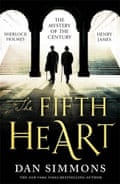
A few years back, Graham Moore’s The Holmes Affair introduced an improbable crimebusting duo in Arthur Conan Doyle and Bram Stoker. Dan Simmons’s The Fifth Heart (Sphere, £18.99) might sound similar, but intellectually it’s a richer brew. A metafictional jeu d’esprit that dares to partner Sherlock Holmes with Henry James, it sets out its stall early on when, having persuaded a depressed James not to throw himself into the Seine – the pair meet by chance in Paris in 1893, during Sherlock’s Great Hiatus – Holmes reveals that he has trained his powers of ratiocination on himself and discovered that he is a fictional character. Having dropped this bombshell, our third-person narrator interrupts the tale John Fowles-style to explain how and why he shifted point-of-view in the previous scene.
If you generally find this sort of thing tedious, fear not. The Fifth Heart’s dominant mode is suspense, not self-consciousness, and at its core is a good old-fashioned mystery involving the death seven years earlier of Clover Adams, socialite wife of the historian Henry Adams. At 600 pages, this is a doorstopper to lose yourself in.
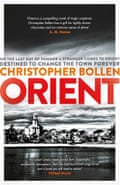
It has competition, though, in former Interview magazine editor-in-chief Christopher Bollen’s hefty Orient (Simon & Schuster, £16.99). There’s something deeply seductive about this slow-burning thriller, set in a small, wealthy, insular Long Island village – a real place, intriguingly. Orient is mistrustful of outsiders, such as fostered teen Mills, who has arrived from the west coast via New York after being “adopted” there by a local bachelor, architect Paul. Mills’s watchful, ambiguous presence triggers not just a spate of murders but the washing up on the shore of a terrifying mutant creature.
At its best, Orient is like Donna Tartt novelising Twin Peaks while F Scott Fitzgerald fixes cocktails. Bollen’s characterisation is pin-sharp and his treatment of his themes mature and multi-layered. The pace slackens a little in the second act – the novel is probably 100 pages too long – but break on through and you won’t regret it.
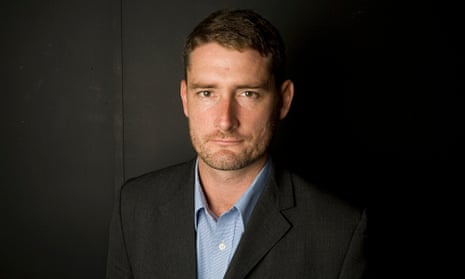
Comments (…)
Sign in or create your Guardian account to join the discussion